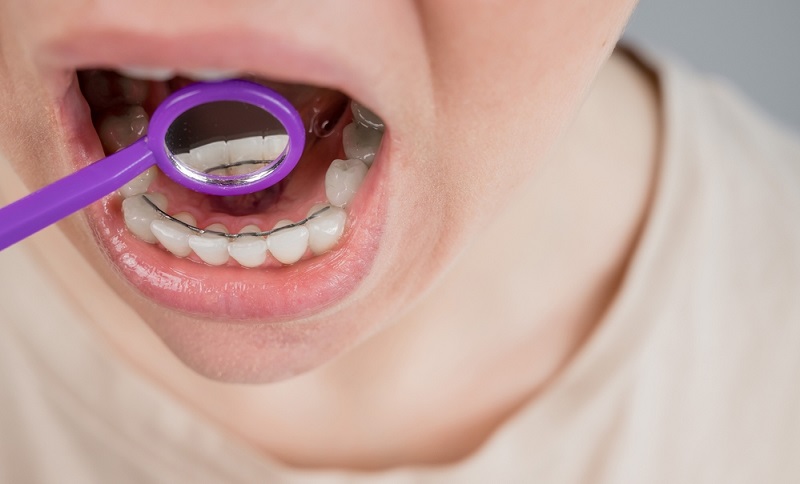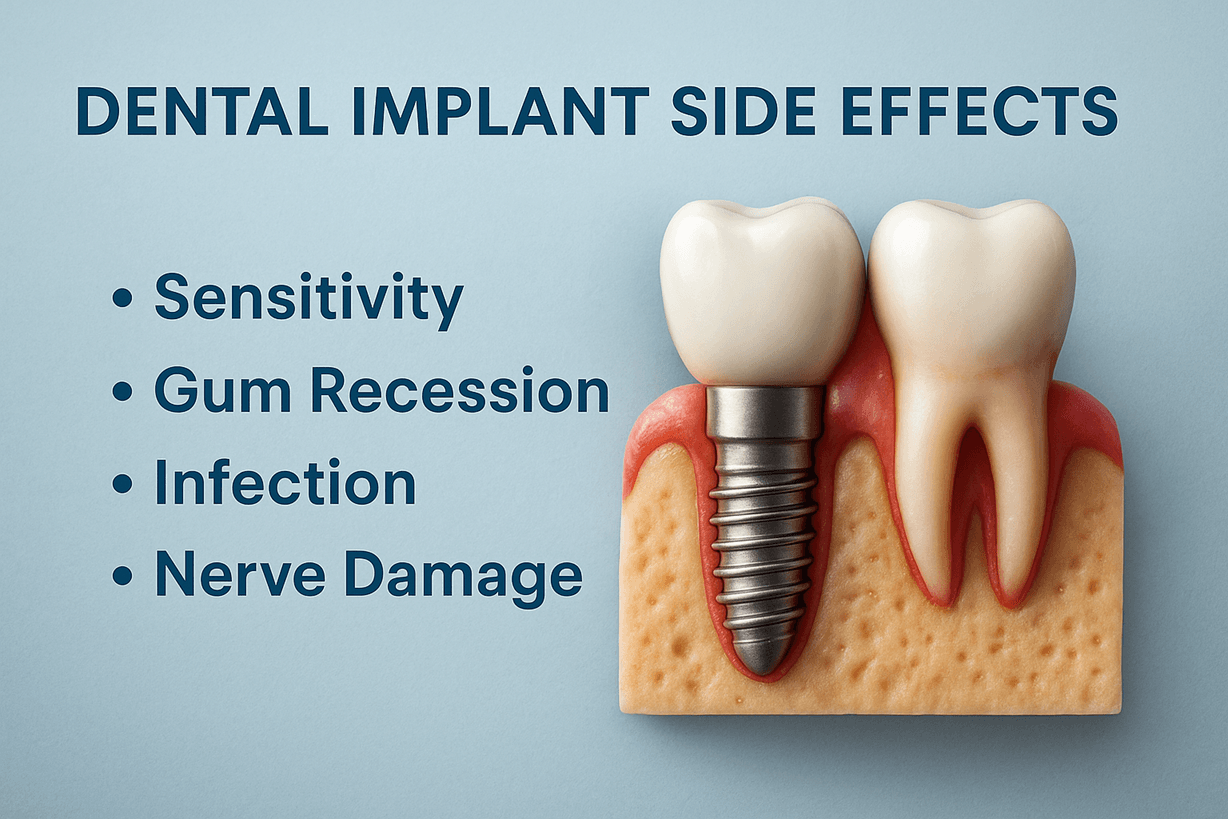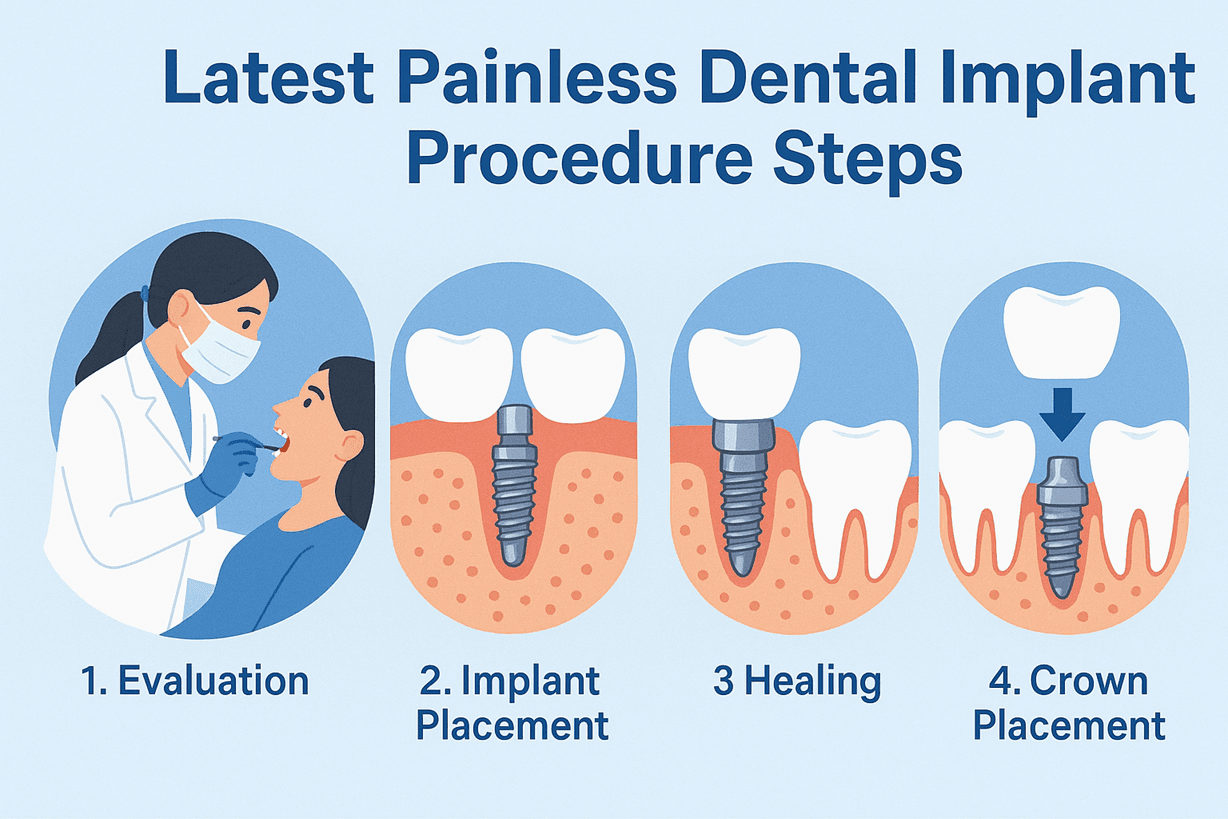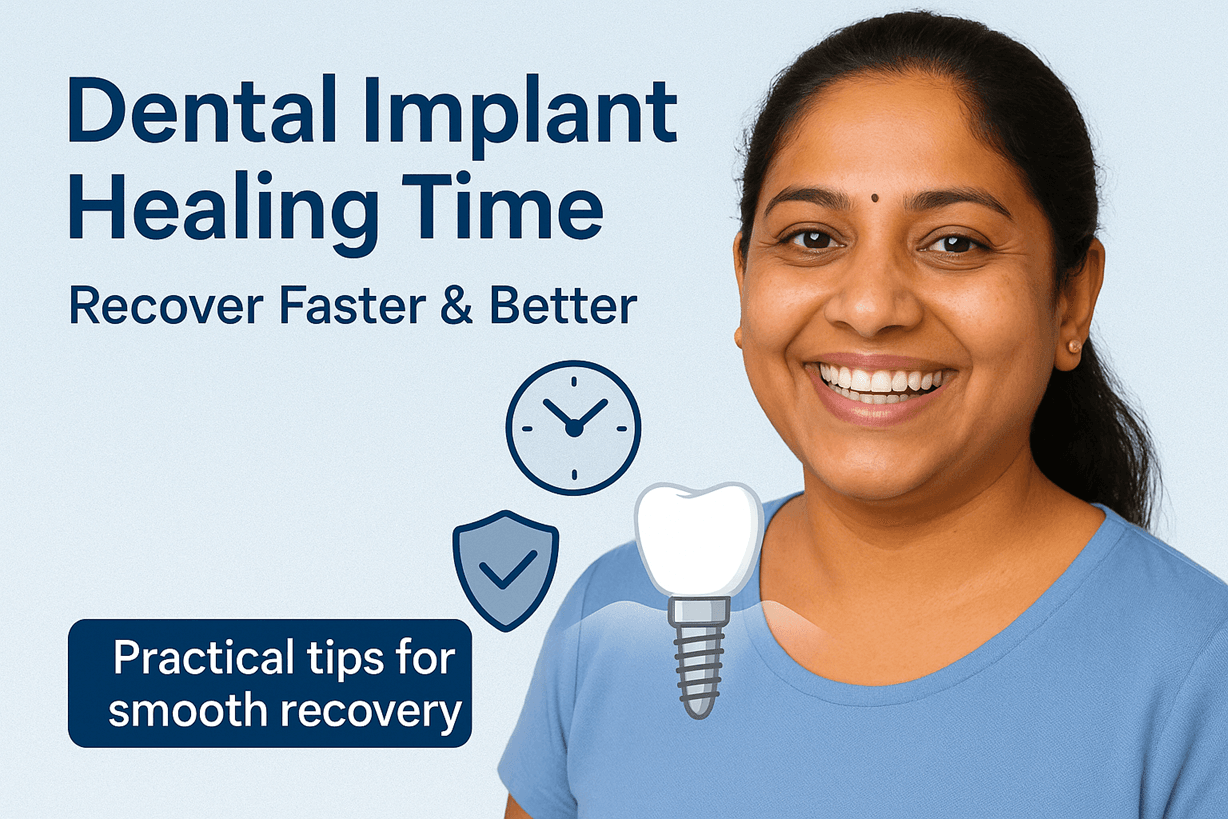Contents

This blog post discusses the significance of using a permanent retainer to keep your teeth in place.
Teeth are a key part of our look and are essential for maintaining good health. A straight smile not only boosts our self-esteem but also makes it simpler to properly eat and enunciate.
Maintaining your teeth's alignment after spending time and money on braces is crucial if you want to reap the rewards of a stunning smile for the rest of your life.
Using a permanent retainer is one efficient way to accomplish it. We'll discuss the benefits of utilising a permanent retainer in this blog post, as well as how it helps keep your teeth in their proper positions.
What is a Permanent Retainer?
A permanent retainer is a type of orthodontic appliance used to help straighten teeth and keep them in place. It consists of a wire that runs along the backside of your teeth and is held in place with small metal clips.
The wire can be either a single arch or double arch depending on your individual needs and the severity of your misalignment.
Permanent retainers are usually made from stainless steel or titanium and are custom-made to fit your unique dental structure.
Pros and Cons of Permanent Retainers
Permanent retainers can offer several benefits, but there are also some potential drawbacks you should be aware of.
Pros of Permanent Retainers
- The main advantage of permanent retainers is that they reduce the risk of your teeth shifting out of place over time. This means you don’t have to wear removable retainers every night and can maintain a healthy smile for life.
- Additionally, many people find that permanent retainers make it easier to keep up with good oral hygiene habits since they don’t need to be removed before brushing or flossing.
Cons of Permanent Retainer
- On the other hand, one downside is that it may take longer for your mouth to adjust to having a permanent retainer than it would with a removable retainer.
- You may experience slight discomfort for the first few weeks after getting one, although this usually fades as your mouth gets used to its presence.
- Additionally, it isn’t possible to move your teeth further with a permanent retainer like you could with traditional braces or another type of orthodontic device, so if your teeth shift again in the future you will likely need additional treatments.
- Finally, while most people won’t notice any difference when speaking or eating with permanent retainers in place, some people find their speech becomes slightly affected by wearing them long-term.
How Much Does a Permanent Retainer Cost in India?
Permanent retainers are an important part of keeping your teeth in shape and healthy.
In India, the cost of a permanent retainer can vary based on several factors, such as the type of retainer you choose and where you have it fitted.
Generally speaking, permanent retainers tend to be affordable in India compared to other countries.
There are two main types of permanent retainers available: fixed retainers and removable retainers. Fixed retainers are made from metal wires that fit around the back of your teeth and stay there permanently.
- These typically cost between Rs 2000 to Rs 5000 depending on the number of teeth they need to cover and where they’re being fitted. Removable retainers are made from a plastic material that is custom-made for each patient.
- They usually cost a bit more than fixed ones, ranging between Rs 4000 – Rs 10,000 depending on the complexity of the retainer design.
- It’s important to remember that while permanent retainers may seem like a large financial investment upfront, it is worth it to protect your dental health long-term!
- Additionally, many dentists offer payment plans or discounts for those who cannot afford their services upfront so make sure to ask about these options when considering getting a permanent retainer!
How to Care for Your Permanent Retainer?
Caring for a permanent retainer is important to make sure it stays in place and works properly.
Here are some tips on how to care for your permanent retainer:
1. Brush and floss around the retainer daily.
Just like with regular teeth, plaque can build up around the retainer which can cause bad breath and even decay.
Make sure to use a soft-bristled toothbrush when brushing near the wire so you don’t damage it.
Also, make sure you’re flossing between each of your teeth regularly so that food particles don’t get stuck in the wires or brackets of your retainer.
2. Use an Antiseptic Rinse.
Use an antiseptic rinse to keep your mouth clean while wearing the retainer. You should swish with this solution at least twice a day after eating or drinking anything other than water.
This will help prevent bacteria from building up on your teeth and around the appliance.
3. Use Tongue Scraper.
Additionally, try using a tongue scraper once per day as well since bacteria can easily grow on the surface of your tongue if not removed regularly.
4. Visit the Dental Clinic.
Finally, visit your dentist every 6 months for checkups and cleaning appointments while wearing a permanent retainer.
During these visits, they will be able to check that everything is still in place and functioning properly as well as look for any signs of infection or tooth decay caused by improper care of the appliance itself.
Also, be sure to bring along any questions or concerns about caring for your permanent retainer so that they can provide more detailed advice tailored specifically towards you!
Fixed vs Removable Retainers: Which Is Right For You?
- Fixed retainers are a great option for those who need to keep their teeth in place.
- These are metal wires that are permanently attached to the back of your teeth and act as an anchor, keeping them in the same position.
- The main benefit of having a fixed retainer is that you don’t have to worry about it coming off or getting lost like removable retainers can.
- Fixed retainers also require less maintenance than removable ones because they don't need to be taken out every night like other types do.
- Removable retainers, on the other hand, are designed to be taken out when necessary and then put back in at night for regular wear.
- These types of retainers provide more flexibility than fixed ones since they can easily be removed and replaced without any hassle.
- Removable retainers also make it easier for you to clean your teeth properly by taking them out during brushing and flossing sessions.
- The type of retainer that you should choose depends on your individual needs, lifestyle, and budget.
- For instance, if you lead an active lifestyle then a removable retainer may work best for you as it is easy to take out while exercising or playing sports.
- If cost is an issue, then a fixed retainer might be the better choice since it typically costs less than its removable counterpart.
- Ultimately, each person's dental situation is unique so discussing with your orthodontist will help determine which type of retainer would work best for you!
Conclusion
In conclusion, investing in a permanent retainer is a wise decision that can save you from the hassle of having to wear braces again.
With a permanent retainer, you can ensure that your teeth remain in their desired position and maintain your beautiful smile for years to come.
A permanent retainer is a simple and painless solution that can prevent costly dental issues and save you time and money in the long run.
So, if you want to keep your teeth in place, don't hesitate to talk to your orthodontist about getting a permanent retainer today!



